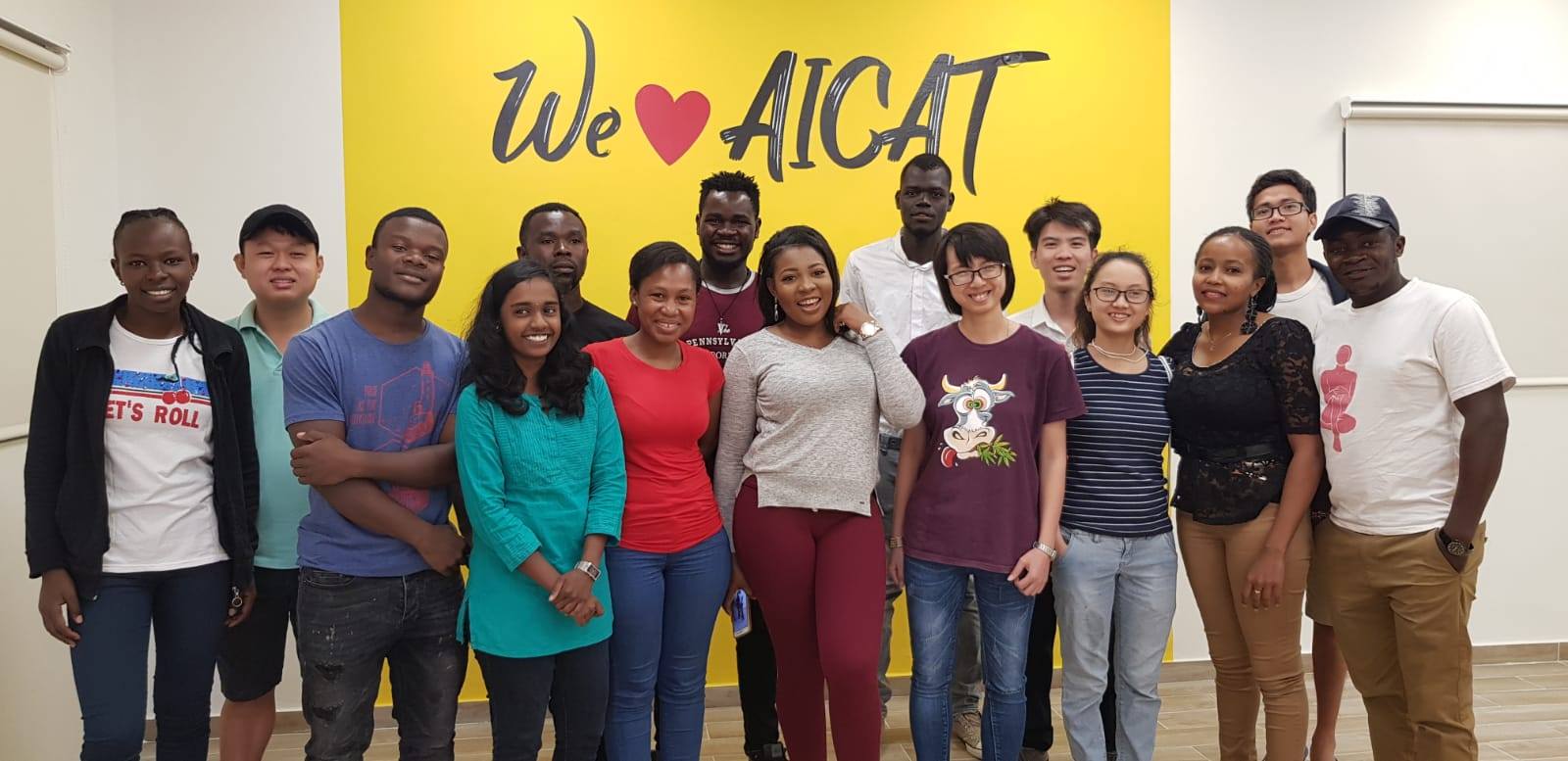Jewish National Fund-USA’s affiliate, the Arava International Center for Agricultural Training (AICAT) is sharing Israeli agriculture knowhow with farmers from developing countries, however, they are also empowering female entrepreneurs, as MATT ROBINSON found.
For people who have never been to Israel, their perspective of the Jewish State may only be derived from what they see on the news. This is especially true for citizens of certain countries that do not have diplomatic relations with Israel.
Since 1994, Jewish National Fund-USA’s affiliate, the Arava International Center for Agricultural Training (AICAT) has been bringing people from developing nations in Africa and Asia to Israel where they not only see for themselves that Israel is far from the country they see on the nightly news. Rather, they see a country that has made the desert bloom. And thanks to AICAT, they are also given the tools and support to use Israel’s agricultural and entrepreneurial secrets to benefit their own communities and countries.

Image: Students studying at AICAT in Israel's Arava region.
Graduates of AICAT come back to their home countries not as job makers, but as job creators.
According to Director Hanni Anon during a virtual session at JNF-USA's 2020 National Virtual Conference, the aim of AICAT is to expose over 1,000 students a year to agriculture in the Arava, and “empower them…turning them into farmers and entrepreneurs.” She also noted that many students come from countries with which Israel has no formal diplomatic ties.
“We hope to be the light for these nations,” Anon maintained.
AICAT students learn not only cutting-edge farming techniques (including drip irrigation and aquaculture), but also marketing and financial analysis.
“We give them tools to implement what they learned in their home countries,” Anon explained. “They use Israeli techniques to make their own companies…[and] to find solutions to any challenges.”
In addition to bringing Israeli know-how to their respective homelands, AICAT students also bring a positive perspective of Israel.
“Our more than 20,000 graduates…are seeds,” Anon observed. “They go home and make their life better. They also become goodwill ambassadors for Israel!”
In presenting AICAT, Central Arava Regional Council Resource Development Director Noa Zer cited the, “truly miraculous impact AICAT is having on the students who attend…and the world,” and introduced some of the thousands of students who have benefitted from coming to Israel to learn and grow.
“AICAT is an agent of change,” Anon suggested. “We bloom the desert and make the impossible possible.”
Deena Thidar Win is a 2012 AICAT graduate from Myanmar who is now CEO of her own honey. While she remembers many of her inspiring international classmates, Win said that she remembered Anon the most.
“She always said that she could provide an empty box to the student,” Win recalled, “but the student has to put in the tools from AICAT and bring them back and apply them.”
The lessons Win learned in Israel were so inspiring that her sister applied to AICAT and is now in an MBA program. Win was also able to help others by creating jobs in her community.
Introduced by Zer as “a bundle of energy,” Menawati Hutabalian from Indonesia explained that, though her village is built around a pond, it was long used only once a year for growing rice.
“I want to show farmers how to use the water to grow cops in the dry season,” Hutabalian explained, adding that the confidence that AICAT instilled in her also allowed her to “prove that a woman can influence people to do something better in agriculture.”
Though Hutabalian admitted that her family was initially concerned for her safety, by the second year of the program, “they trusted me and encouraged me to pursue [my] dream and to bring something to build [my] country.”
When asked to summarize her experience at AICAT and in Israel, Hutabalian said, “I like this phare: ‘The sky is the limit!’”
Kenyan Jennifer Masawa is a single mother and social activist who works to empower other women. After AICAT, she went on to pursue a master’s in plant sciences at Tel Aviv University (an AICAT partner)
“Women growing up in Israel have equal access,” Masawa observed. “This is not the case in my country.” Recalling personal experience with poverty and the many friends who had to drop out of school or agree to arranged marriages, Masawa thanks her family and AICAT for allowing her to “stay with my daughter and give her opportunities I never had.”
Recalling childhood dreams of creating change and “break[ing] the norm,” Masawa posited AICAT as “a blessing to my life,” adding that she was grateful for the exposure and knowledge it afforded her and for the opportunity to not only build her academic profile but also to support her family back home.
Before her daughter expressed her dream of becoming a doctor, Masawa said that her goal now is to serve her country in a leadership role “so I can impact policies, especially in agriculture.”
Speaking of leadership, Kenyan Ambassador to Israel Samuel Thiuta praised the companies that are “transforming farming practices” in his homeland and prayed for a good new year for Israel and Kenya and for further strengthening of their relationship.
“G-d bless Israel,” he exclaimed. “G-d bless Kenya. G-d bless Africa.”
Zer noted how many AICAT students have never left their villages before and do not know the language or what to expect.
“They go home ready to make life better at home,” she concluded. “That, my friends, is success!”
